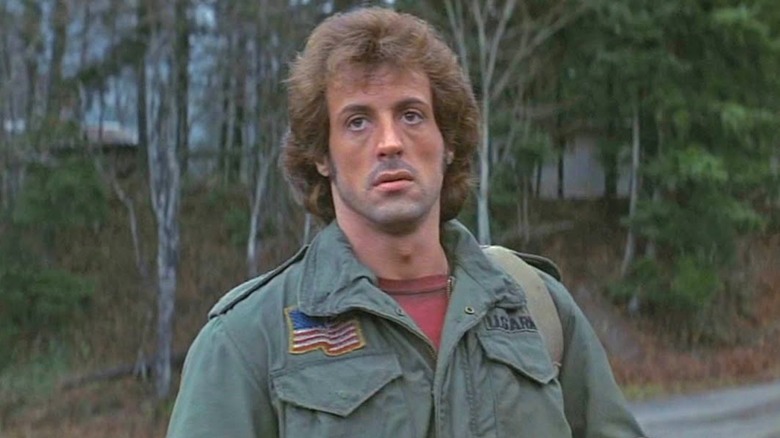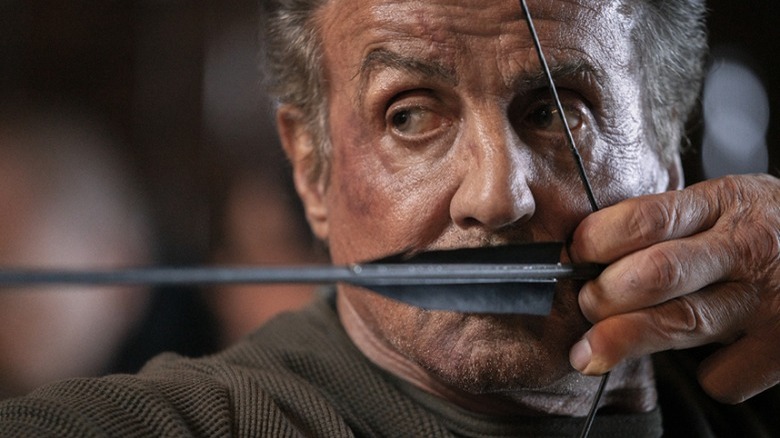Sylvester Stallone Changed The End Of First Blood - And Got Sued Over It
The following article discusses post-traumatic stress disorder and suicide
Aside from Rocky Balboa, there's no denying that John J. Rambo is Sylvester Stallone's most iconic character. Since playing him for the first time in 1982's "First Blood," Stallone has seen the character become a Hollywood icon through big bombastic action adventures. However, the film that started it all takes on a much different tone. It's somber and contemplative and has a lot to say about the psyche of a man who has endured the horrors of war. Stallone appreciates this, hence why he was willing to risk a legal battle and potentially his career to maintain it.
In the closing moments of "First Blood," Rambo is cornered during a showdown with law enforcement. His friend, Colonel Sam Trautman (Richard Crenna), is there to support him as he vents about the trauma he endured while serving in the Vietnam War. He stands down and is taken into custody, but that's not how the film was originally going to end. The intended conclusion would've seen Rambo either killed by Trautman or die by suicide, which Stallone was vehemently against. "I go, 'That's not the message. The only way out is to die?'" Stallone recalled in an interview with Tom Power.
According to Stallone, director Ted Kotcheff wasn't happy with his attempt to change the ending. After taking out his frustration on the set, he sued Stallone for committing to Rambo's survival. Stallone eventually begrudgingly filmed the death scene, though test audiences despised it, so Stallone's version ultimately made it into the final film.
Stallone has always wanted to keep the Rambo films feeling genuine
The motivating factor behind Sylvester Stallone's decision to resist the planned ending to "First Blood" was his respect for military veterans — specifically those diagnosed with post-traumatic stress disorder. He didn't want the film to indicate to them that they couldn't live their lives because of their condition. While "First Blood" sequels would move away from this more grounded theme in favor of turning Rambo into a cartoonish action hero, Stallone made it a priority to return to the franchise's roots as he brought it to a close.
"What I'm trying to show is how horrible war is and how you never get over it when you participate in it, and once you commit to it, you are now condemned by it," Stallone said while promoting what he's called the last installment in the "Rambo" saga, "Rambo: Last Blood" (via CineMovie on YouTube). He adds that his goal was to make the gore as harrowing as possible in the film, not purely for frivolous reasons. He wanted to leave a lasting impression on the audience, reminding viewers of the horrific sights that have turned Rambo into the person he is.
Regardless of how you may feel about the "Rambo" franchise, it's clear that Sylvester Stallone has always seen it as capable of being more than a string of entertaining blockbusters.
If you or someone you know needs help with mental health, please contact the Crisis Text Line by texting HOME to 741741, call the National Alliance on Mental Illness helpline at 1-800-950-NAMI (6264), or visit the National Institute of Mental Health website.

